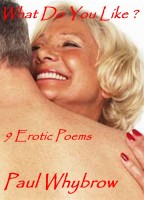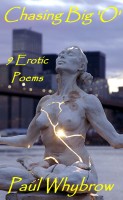I was clearing my Hotmail Inbox this morning, and came across a bulletin from the site ‘The Art Of Manliness’.
I’ve subscribed to their postings for several years. The site tackles some interesting subjects, giving useful advice – though it’s unintentionally humorous at times. The old advertising photos that it uses to illustrate articles have a certain whimsy. It’s free to sign-up to – see the subscription box at the side of their page.
The bulletin that caught my eye was by author Marcus Brotherton and is titled ‘The 5 Insanely Difficult Steps to Writing a Commercially-Published Novel’
After writing a novel in 2014, I particularly agreed with what he has to say about how hard it is to get your work known :
“But I’d also say to be prepared for a heavy dose of reality. Commercial publishing is a mercenary business, and works of fiction are harder to get published than non-fiction books. Publishing fiction is a longshot at best, and there are no fail-safe solutions anyone can prescribe to guarantee you success.
So, I offer a paradoxical sort of encouragement. For anyone contemplating writing a novel, I’d give two messages: both “you can do it” and “beware,” at the same time. The caution means that almost anyone can write and publish a novel, true, but there’s a high price to pay to do it, for which you need to be prepared. I’d be doing you a disservice if I told you otherwise.
One of the main problems is that people tend to think that the actual writing of the book is the only battle they will face in the process. But the writing is only about a quarter of what’s needed. The second quarter is the fight to get your manuscript published. The next quarter is relentlessly marketing your book once it comes out, which publishers expect you to do these days.
Then the final quarter is going to primal scream therapy after your book sales fail miserably because by then you’re depressed and broke and visionless, and insanely jealous of John Grisham, James Patterson, Ken Follett, and Lee Child—pretty much the only four male scribblers who actually make money at this game.”
People who haven’t done it, think that the actual writing of a story is the difficult part, but it’s the business side of it that takes time, effort and patience.
By 2015, I’d been self-publishing online for about eighteen months, initially on Smashwords, then on Amazon. I write novels, short stories, novellas, poetry and song lyrics. Although I’m confident in the worth of my writing, the actual marketing of it has been both intriguing and frustrating.
Sales were poor, so as a ploy to raise my profile I decided to give all of my books away for free. I hoped that this might help to launch my novel ‘The Perfect Murderer’, that I laboured so hard at in 2014. Downloads of my books picked up and were encouraging, for after all the price was right.
I decided to compile a couple more collections of my poetry, including some erotic verse. I published ‘What Do You Like ?’ on Smashwords, and to my astonishment, over the last four years, it’s been downloaded 2,000 times! Had I been charging my usual $2.99 for poetry, and if they’d been prepared to pay, I’d have earned $6,000!
I began to understand why there are so many stories about sex on Smashwords. I’d been looking down my nose at them all a bit, thinking they were just jumping on the 50 Shades bandwaggon. But if it’s sex that sells, then that’s what writers will write. I expect that many of them are like me, writers who were exasperated at their best literary efforts being ignored, so wrote something naughtier and were amazed at the results.
The next time that you see someone using a Kindle in public, to read a book, I bet that they’ll be secretly getting turned-on by something erotic! The very anonymity of these e-reading devices has led to a boom in erotic writing.
I’m a long way from being a prude, but some of the titles that I see published appear to cross over the fine boundary between erotica and pornography. As the old adage goes – ‘Being erotic is when you make love to someone using a feather. Pornographic is when you use the whole chicken!’
Writing fiction, one has to get into the mindset of whoever you’re describing. This can have quite an effect, as I found when researching the first crime novel I wrote, ‘The Perfect Murderer’ where I had violent nightmares about shady figures stalking me. I can’t say that writing erotica was particularly arousing though, but I’ve got enough happy memories to draw upon to make it sound realistic.
I’m really not sure what to tackle next, and whether I should ditch any literary aspirations, to write in a shallow, steamy and titillating way, promoting my book with sexual tags – erotic, sex scenes, kinky, insatiable etc, etc.
To add to my confusion, I put together a second collection of erotic verse, which I published in 2016. I already had five poems about sex that were unpublished, so wrote four more. These were more overtly sexual than the others, to make the collection steamier. The irony is, that I felt about as erotic as a cold used tea-bag, as I sat here in 50 degrees wearing fifteen garments, including woolly gloves, and with my feet resting on a hot-water bottle.
I expected the new book ‘Chasing Big ‘O’ ‘ to be noticed and downloaded lots, for, after all, I’d used the alluring tags of ‘erotica’, ‘sex’ and ‘orgasm’ to describe it. To my surprise, only 200 people downloaded it over the next three years. The reason that they haven’t may simply be down to the new book not having naked flesh on the cover. Instead, it shows a fragmenting female statue. This means that readers aren’t even bothering to use the tags to search – simply looking for something that might be rude.
This amateur market research has only produced one firm conclusion – readers like erotic verse and stories.
I’m not the first writer to be confronted with this trap. One of my favourite crime authors is Lawrence Block, whose recovering alcoholic detective hero was partly instrumental in helping me to quit booze twenty-three years ago. Like the famed writer Donald Westlake, Block started off his career writing porn paperbacks under a series of pen-names. Those were the days when such a trade was seen as shameful, rather than a reason for instant celebrity and admiration.
Onwards, and who knows where?

